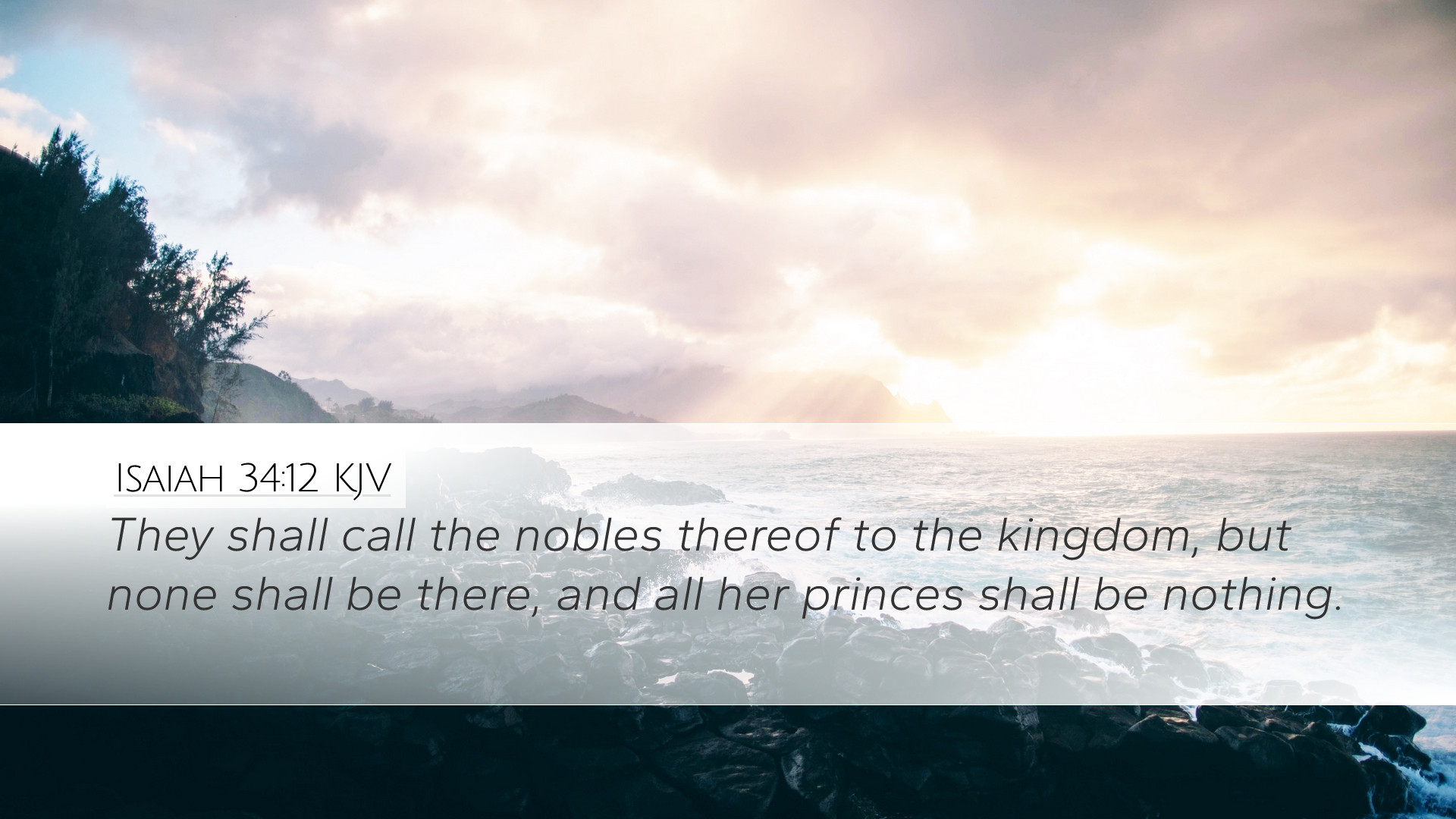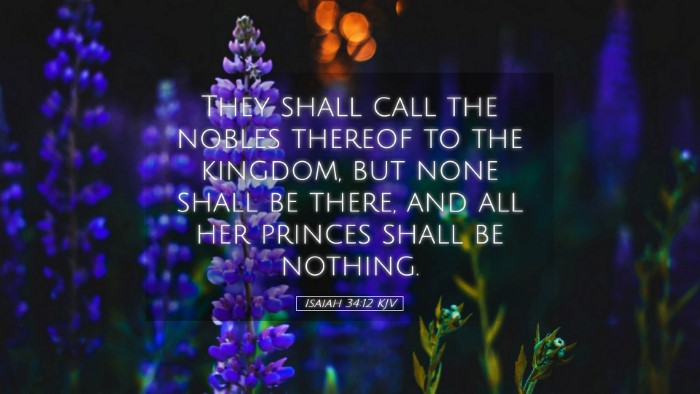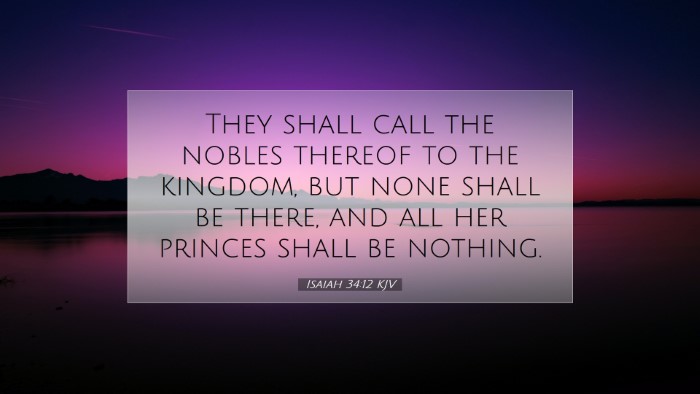Commentary on Isaiah 34:12
Isaiah 34:12 states:
"They shall call the nobles thereof to the kingdom, but none shall be there, and all her princes shall be nothing."
This verse falls within a larger context where Isaiah proclaims the judgment of God upon the nations, offering critical insights into divine retribution and prophetic symbolism. By drawing from various public domain commentaries, we can explore its multifaceted implications for pastors, students, theologians, and Bible scholars.
Contextual Overview
Isaiah 34 portrays a scene of divine judgment against Edom, a region symbolizing rebellion against God. The chapter serves as a vivid reminder of God's sovereignty over nations and His ability to bring low those who oppose His purposes. In the immediate context, verses prior highlight the call for nations to prepare for this judgment, emphasizing the severity of God's displeasure.
Exegesis of Key Terms
-
Nobles: The term refers to the leaders and influential persons within the kingdom. Their summons signifies the inability of earthly power to withstand divine judgment.
-
Kingdom: This symbolizes both a literal kingdom and the spiritual realm of authority that God commands. The lack of response to the call signifies an absence of power when God executes judgment.
-
Princes: Representing authority and governance, their described state as 'nothing' underscores the futility of human positions amidst divine will.
Theological Implications
The verse encapsulates several profound theological themes:
-
Divine Sovereignty: The obliteration of earthly power structures depicts the ultimate sovereignty of God over all human affairs. As Matthew Henry notes, when God decides to act, no one can thwart His plans.
-
Judgment and Desolation: The absence of noble and prince reflects judgment that renders human authority void. Albert Barnes remarks on the desolate state of Edom as a warning to all nations that defy God.
-
Pride and Consequence: The text serves as a reminder that pride has perilous consequences. Adam Clarke emphasizes that those who rise in pride will inevitably fall before God’s justice.
Historical Context
In ancient Israel, Edom was often in conflict with Judah. The prophetic word delivered by Isaiah serves as both a warning and a vindication for Israel. Understanding the historical animosity sheds light on the depth of judgment pronounced upon Edom, as it reflects God's protection over His chosen people.
Literary Structure
The verse is notable for its stark portrayal of emptiness and despair. The juxtaposition of calling noblemen to a nonexistent kingdom serves as a literary device that powerfully illustrates the futility of depending on human authority in the face of divine judgment.
Applications for Today
Isaiah 34:12 speaks to the contemporary church and society:
-
Reliance on God: Believers are reminded to depend not on earthly authorities but on God’s sovereign power and justice.
-
Humility: The verse calls for humility in the face of God, reminding leaders and congregants alike to recognize their limitations.
-
Hope in Judgment: While judgment can be a source of fear, it also holds a promise of redemption and restoration for those who remain faithful.
Conclusion
Isaiah 34:12 is a poignant reminder of the transitory nature of human authority and the permanence of God's rule. Through the insights gathered from esteemed commentators, it becomes evident that this prophecy, while specific to Edom, transcends its immediate context and speaks powerfully to all generations.
The careful analysis of this verse encourages profound reflection on the nature of power, the reality of judgment, and the unfailing sovereignty of God over all creation.


